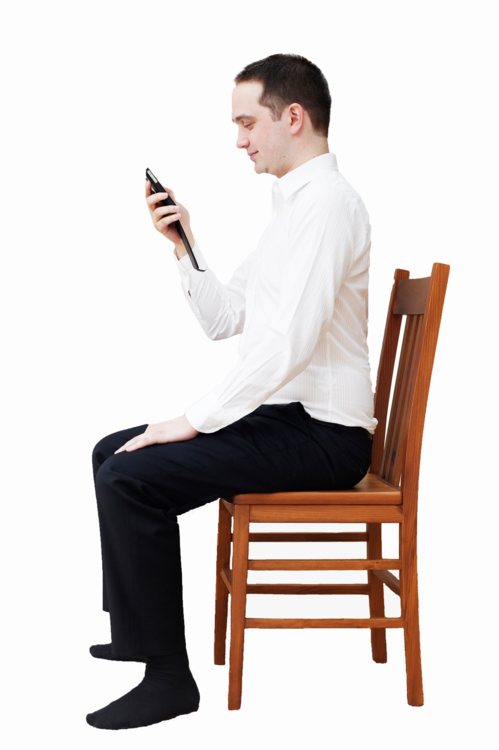Text Neck is Painful – Avoid it!
It was good to see some research published last year by Dr Kenneth Hansraj, in which he demonstrated how damaging it can be for us to spend time dropping the head forwards in order to use a smart phone – which many people do for several hours a day. This habit can result in people developing a condition called ‘Text neck’ and this is something that Alexander Teachers and other practitioners are seeing in increasing numbers, as people want help with reducing pain and discomfort.
The problem of text neck comes about because of the weight of our heads and the manner in which we use our bodies to support it or, most likely, do not support it efficiently.
I took this photo of some young men in London. They were all on their phones. All hunching over them in a variety of different ways. If you think about just how heavy those heads are, (see below) you can begin to sense how they drag on the neck muscles and compress the spine.
Symptoms of Text Neck:
- Headaches,
- Neck Pain,
- Upper Back Pain
- Shoulder Pain
- Increased Curvature of the Spine
Add to this an increase in the number of people developing RSI and you can see that using smart phones can be a risky business, unless you are careful.
Our heads are surprisingly heavy.
An adult’s head weighs between 10 – 12 lbs, or 4.5 – 5.0 kg. Human heads are heavy!. When I give someone their first Alexander lesson, I often ask them to hold a couple of weights that, together, weigh 8.8 lbs / 4 kgs and I explain that the weights almost certainly weigh less than their heads. Most people are really shocked!
When we have a neutral, upright poise, so that the head balances freely on the top vertebra, we do not notice the weight of the head much. However, when the head and neck are dropped forwards, as in the diagram below, we do begin to notice, and the impact of that big weight increases the more pulled down we are. When someone’s head is dropped forwards to an angle of 60 degrees, the weight seen by the spine is massively increased to 60 lbs. No wonder we begin to get neck, back and shoulder ache! If this misuse and position become a habit, then we begin to damage the cervical spine with an increased curvature, which can get fixed into a very hunched postural position.
Of course this sort of habit can also develop from performing other activities whilst dropping the head forwards and down – for instance when reading books, sewing, performing craft-work or computing – I take care to think about my body use when writing this, so that I avoid contracting down over the keyboard.
How Much Time do You Spend on Your Phone? How do You Use it?
If you take note of your habits, you may be surprised by the amount of time you hunch down over your cell phone – the average is between 2 – 4 hours per day. Are you reading this Blog on your phone right now? How much tension are you using whilst phoning and texting?
Perhaps mobile phones are more of a problem than other activities, because they get taken around with people all the time and demand our attention incessantly – it is hard to escape them! Often they are work phones, so people can be stressed by being contacted by work when they want to relax, or by having work problems follow them around all day. When we are stressed, we tend to be more tense and contracted and this just exacerbates any problems we may have with the way we use ourselves whilst on the phone. This sort of thing also contributes to RSI.
So How Do You Avoid Painful Text Neck Developing?
You can probably begin to see that it is worth paying attention to your phone use, because once you are aware of your habits, you can choose to do things differently and begin to avoid building up problems for yourself.
The young man in this photo below demonstrates how we can use the Alexander Technique to be mindful of our body use and be seated in an easy but poised manner. Note how he brings the phone up towards his eyes so that he can read the screen without disturbing the balance of the head on his neck, which is able to remain lengthening in alignment with the rest of his spine. He could also text or play games in this position and could maintain this sort of body use if he were standing.
Sometimes I will work with people whilst they demonstrate how they use their mobile phone, as part of their AT lesson. This can be really helpful, as people often begin to notice habits they were totally unaware of and they are then able to be more mindful about their body use when they are out and about, texting, phoning and playing games.
As one pupil reported after starting AT lessons:
“I’m more relaxed and don’t feel so dizzy as before and I have less neck pain”
Discover how to have fun on your phone, without feeling exhausted and achy afterwards!
Photo: STAT

-thumb-500x281-260.jpg)
